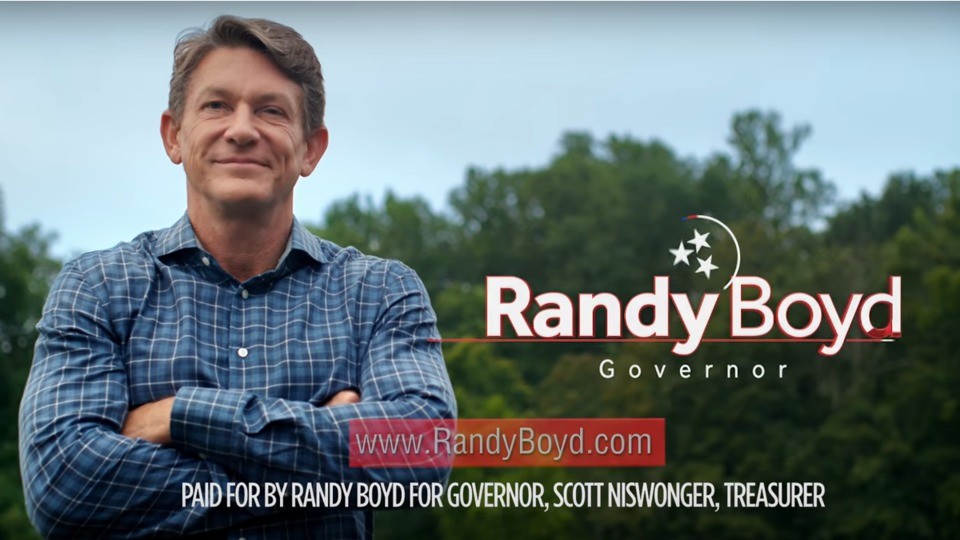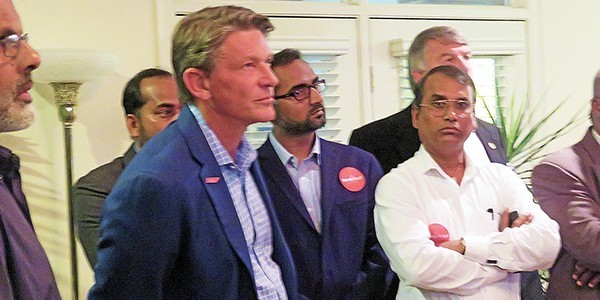
One of the oddest statewide political campaigns in Tennessee history is being run right now, and, if various polls are correct, it could end up being one of the most successful, as well.
The campaign is that of former state economic development commissioner Randy Boyd, and what’s odd about it is the almost complete disconnect between what this financially well-endowed candidate chooses to feature in his ads and the substance of what he says in conversations with individuals, as well as in his speeches to crowds.
If all you saw of Boyd were his TV ads, which are loaded with hard-edged innuendo about the Second Amendment, potential welfare cheats, illegal immigrants, and Democrats’ alleged indifference to the porousness of our southern border, you would think: This guy is the right-winger of the race, more Trumpian than arch-conservative gubernatorial rival Diane Black (Boyd’s TV spots even imply an affinity for the president) and a leftover from the heyday of the Tennessee Tea Party.

But listen to Boyd au naturel, as when this veteran of the Haslam administration and architect of such programs as Tennessee Promise and Drive to 55 discusses his ideas in forums and at stump speeches and fund-raisers, and all of that is turned on its head. What Boyd talks about instead is the kind of ameliorist, problem-solving approach you would expect to hear from a centrist Democrat or a moderate Republican.
A case in point was Boyd’s appearance Monday evening at a fund-raiser at the Germantown home of Naser Fazlullah, a native of Bangladesh who has become a fixture at Shelby County Republican events in general and a frequent host for GOP fund-raisers and meet-and-greet events.
The crowd at Fazlullah’s jam-packed event was a study in diversity, with Asian-American attendees accounting for at least a quarter of the 150 or so attendees — and a clear majority of the questions fired at Boyd, following his address. They came from apparent well-to-do professionals and were entirely in character with the candidate’s prior remarks, which ranged across the spectrum of issues that normally occupy the attention of public-policy enthusiasts, especially of the (dare we say it?) progressive variety.
Education, health care, technology, immigration, workforce development, transportation, urban strategies: These were the things that Boyd talked about, in a focused, detailed way, and these were the things he was asked about.
His answer to a question about health care solutions for indigent citizens is instructive: block grants from the federal government (as close as possible to the Medicaid expansion amounts formerly promised by the Affordable Care Act — and spurned by the GOP super-majority in the General Assembly), coupled with appropriately local controls; emphasis on preventive health programs; better “consumerism,” as in strict monitoring of the cost levels of medical procedures.
Boyd’s answers, like the questions, were thoughtful and precise and exuded more the aura of a seminar than of a strictly political event. Why, then, do his TV ads depict him as “Conservative Randy Boyd” and seem to concentrate on the talking points of today’s right-wing fringe? Go figure. His official answer to that question some weeks back was: “If I’m running to be the Republican nominee in Tennessee, I want Republican voters to see that I’m one of them.”